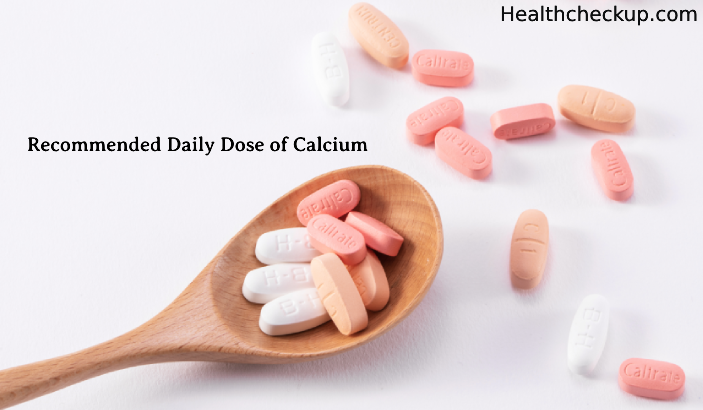Calcium is a vital mineral essential for bone health, muscle function, nerve transmission, and other physiological processes in the body. Adequate calcium intake is crucial throughout life, but requirements may vary based on age, sex, and other factors. In this article, we will talk about how much calcium per day is recommended for women, men, and adults over 50, 60, and 70, along with the recommended daily doses and sources of calcium.
Calcium Requirements by Age and Sex
1. Women
- Adult Women (18-50): The Recommended Dietary Allowance (RDA) for calcium for adult women is 1000 milligrams per day.
- Adult Women (over 50): The RDA for calcium for women over 50 increases to 1200 milligrams per day to account for the increased risk of osteoporosis and bone loss after menopause.
2. Men
- Adult Men (18-50): The RDA for calcium for adult men is also 1000 milligrams per day.
- Adult Men (over 50): Men over 50 have the same RDA for calcium as women in the same age group, which is 1200 milligrams per day.
Calcium Requirements by Age Group
The following table provides an overview of the recommended daily doses of calcium for adults, including men and women, across different age groups:
| Age Group | Recommended Daily Dose of Calcium (milligrams per day) |
| Women (18-50) | 1000 |
| Women (over 50) | 1200 |
| Men (18-50) | 1000 |
| Men (over 50) | 1200 |
Calcium Requirements for Older Adults
1. Adults over 60
- Adults over 60: The RDA for calcium for adults over 60 remains at 1200 milligrams per day to support bone health and prevent osteoporosis.
2. Adults over 70
- Adults over 70: The RDA for calcium for adults over 70 also remains at 1200 milligrams per day due to the continued risk of bone loss and fractures associated with aging.
Factors Affecting Calcium Absorption and Requirements
Several factors can influence calcium absorption and requirements:
- Vitamin D: Adequate vitamin D levels are essential for calcium absorption. Vitamin D helps the body absorb calcium from the intestines and plays a crucial role in maintaining bone health.
- Magnesium: Magnesium is required for the proper utilization of calcium by the body. Ensuring adequate magnesium intake can support optimal calcium metabolism.
- Age and Gender: Calcium requirements m vary based on age and sex, with older adults and postmenopausal women typically requiring higher doses to maintain bone health.
- Dietary Factors: Certain dietary factors, such as high oxalate or phytate intake, can inhibit calcium absorption. Consuming calcium-rich foods alongside sources of vitamin D and magnesium can enhance absorption.
Sources of Calcium
Calcium is found in a variety of foods, including:
- Dairy products such as milk, cheese, and yogurt
- Fortified plant-based milk (e.g., almond milk, soy milk)
- Leafy green vegetables like kale, broccoli, and collard greens
- Tofu and tempeh
- Nuts and seeds, particularly almonds and sesame seeds
Adhering to daily calcium requirements is crucial for maintaining strong bones, muscle function, and overall health throughout life. By following recommended intake levels and incorporating calcium-rich foods into your diet, you can support optimal bone health and reduce the risk of osteoporosis and fractures, especially as you age.
I specialize in writing about health, medical conditions, and healthcare, drawing extensively from scientific research. Over the course of my career, I have published widely on topics related to health, medicine, and education. My work has appeared in leading blogs and editorial columns.









